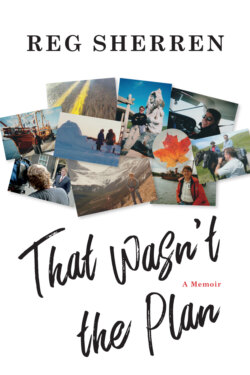Читать книгу That Wasn’t the Plan - Reg Sherren - Страница 26
На сайте Литреса книга снята с продажи.
Hook, Line and Sinker
ОглавлениеOverfishing was becoming a bigger and bigger issue, not just around Newfoundland but on the high seas. Tensions escalated. Spanish trawlers were arrested as Canada tried to assert some level of control over the amount of fish being hauled from the water. Stories of concern, outrage and desperation surrounded the state of the fishery. Eventually it would all lead to disaster.
Any fool could see it coming. John Crosbie, the federal minister of fisheries for Brian Mulroney, was dispatched to Spain to twist some arms. Both the Spaniards and the Portuguese were being accused of gross overfishing practices, but it was the former who appeared to possess the most efficient fish-killing technology.
I was chosen to try to figure it all out. Money did not seem to be an issue. I proposed we follow Crosbie and at the same time take a closer look at the fishing operations of Spain and Portugal.
Now, Portugal was (and still is) viewed with a certain affection by some Newfoundlanders, particularly in St. John’s. For centuries the fishermen of its White Fleet worked the waters around the island, and they were a fixture in the capital, wandering the streets or playing soccer down on the docks while they resupplied. Fishing being what it was, many of those young men also reeled in local girls, marrying and carrying them back home. It was a relationship that stretched back close to five hundred years.
The earliest footage from out on the banks was shot in 1967 by cameraman John O’Brien on board a ship from the Portuguese White Fleet. John was a man of the deepest integrity, and he had a whip-smart mind. Every day he walked to work, no small distance, he always wore a tie, and when he walked into the camera room, he had a quiet but commanding presence.
John was now sixty years old if he was a day, still lugging around camera gear—the newfangled, bloody heavy three-tube Betacam cameras. They weighed twenty-five-plus kilos, and John was barely sixty kilos himself. His film footage from the Grand Banks had taken people to another world. Portuguese fishermen rowing away from the main schooner in their little dories, carrying tubs full of baited hooks, all alone on the North Atlantic hundreds of kilometres from shore, working from before sun-up until sundown to fish the cod, the bacalhau.
So John was the perfect choice to go to Spain and Portugal. The circle was complete. Kevin Norman was also along as producer. As it turned out, we never saw Crosbie—well, only briefly. Itineraries shuffled and telephone communication proved impossible with the language barrier.
It didn’t really matter. We had come to figure out whether the Spanish and the Portuguese were the villains they were being made out to be. Turned out the answer wasn’t quite that simple. In Canada back then, the average Canadian consumed under thirteen kilos of fish a year. For the Spanish and Portuguese, the number was closer to sixty kilos. To them, fishing was about feeding a nation.
At four in the morning we started taping, as the fishing boats arriving on the docks in Lisbon. Fish was coming from the four corners of the world. It was an amazing sight that stretched out for kilometres along the huge docks.
Taking a break from filming in Aveiro, Portugal, to promote the CBC with some beach art. We were shooting a piece on foreign overfishing.
The Portuguese people were polite and friendly. In Aveiro, the home of the White Fleet, when folks learned we were from Newfoundland we were like long-lost cousins. There were grilled fish dinners and shots of Portuguese almond liqueur toasting our long-standing friendship and history.
In the harbour a few of the original White Fleet boats remained, rusting against the dock, but they were more about nostalgia than practicality. The White Fleet would never sail again. It was becoming increasingly harder to get young men to go to sea for months on end and work back-breaking hours far from home.
Of course, the Portuguese were still fishing: they had a nation to feed. But much of their equipment appeared old and dated. They also seemed genuinely upset that they had been lumped in with what the Spanish fishing fleets were doing. There is an old saying in Portugal: “From Espanha, no good wind blows, and no good marriage either!”
The Spaniards, I have to say, didn’t appear as friendly. They were cagey. You could clearly see that their fleet in the harbour near San Sebastián was much more modern, more efficient than the Portuguese fleet. We saw them again in Vigo on the Atlantic coast. They were noncommittal about the state of the fish stocks and whether there was any need to cut back on fishing. Their nonchalant attitude toward overfishing was as profound as it was prophetic.
In the end, I wound up producing a three-part documentary focusing on why the fishery off Newfoundland was so important to the Spanish and the Portuguese. It was all about the politics of cod. As I said, any fool could see the end of the fishery coming.
